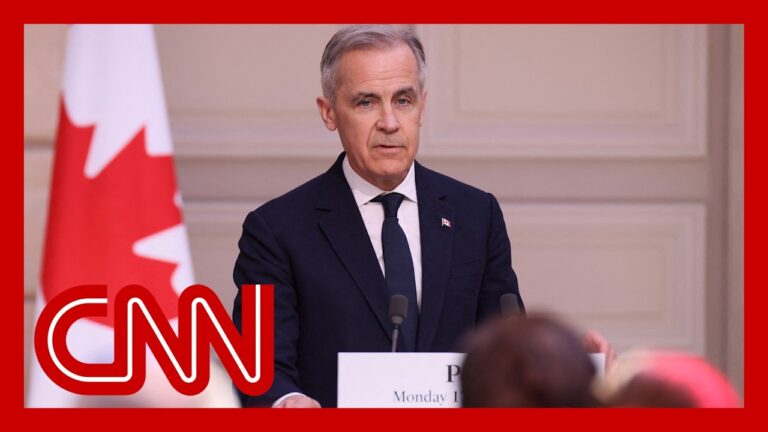Video at the bottom!
Mark Carney’s first official trip as Canada’s Prime Minister took an unconventional route, choosing Europe over the United States, which traditionally receives such visits. His welcoming reception from French President Emmanuel Macron highlighted a commitment to strengthening ties between Canada and Europe. In London, Carney met with British leader Sir Keir Starmer, emphasizing the unity of Canada and Europe against rising tensions, particularly those stemming from U.S. President Donald Trump’s controversial remarks regarding Canada.
Carney criticized Trump’s comments, asserting that Canada is capable of defending itself without relying on external support. He pointed out that the repercussions of trade uncertainty and tariffs from the U.S. are affecting both nations, stating that Canada cannot control U.S. policies but can enhance its own domestic economic strategies. Canada, he argued, has the potential for significant growth if its economy is unified and diversified. He outlined plans to build much-needed housing and fully harness Canada’s energy resources, both conventional and clean.
Throughout his visit, Carney maintained a tone of independence, stressing that Canada does not require other nations to advocate on its behalf. His statements reflect a desire for bilateral dialogue with the U.S. based on mutual respect, indicating that conversations regarding broader partnerships must address the disrespectful discourse from American leadership.
In his meeting with Macron, Carney reinforced his position that Canada stands with its European allies in a world increasingly focused on security alliances, particularly in response to global challenges like the situation in Ukraine. He acknowledged ongoing efforts to enhance Europe’s defense capabilities, which presents new opportunities for Canadian industries to engage in defense contracts previously dominated by U.S. suppliers.
The discussions also hinted at a potential reassessment of Canada’s defense procurement strategies, including considering European suppliers, such as Sweden, that could replace American arms contracts. Carney’s approach signals a pivot towards building stronger alliances with European nations while not entirely dismissing dialogue with the U.S., contingent upon a more respectful posture from Washington.
By initiating his term with a visit focused on European partnerships, Carney sends a clear message: Canada is willing to assert its interests on the global stage while adapting to a changing geopolitical environment where traditional alliances may evolve in response to new challenges.


